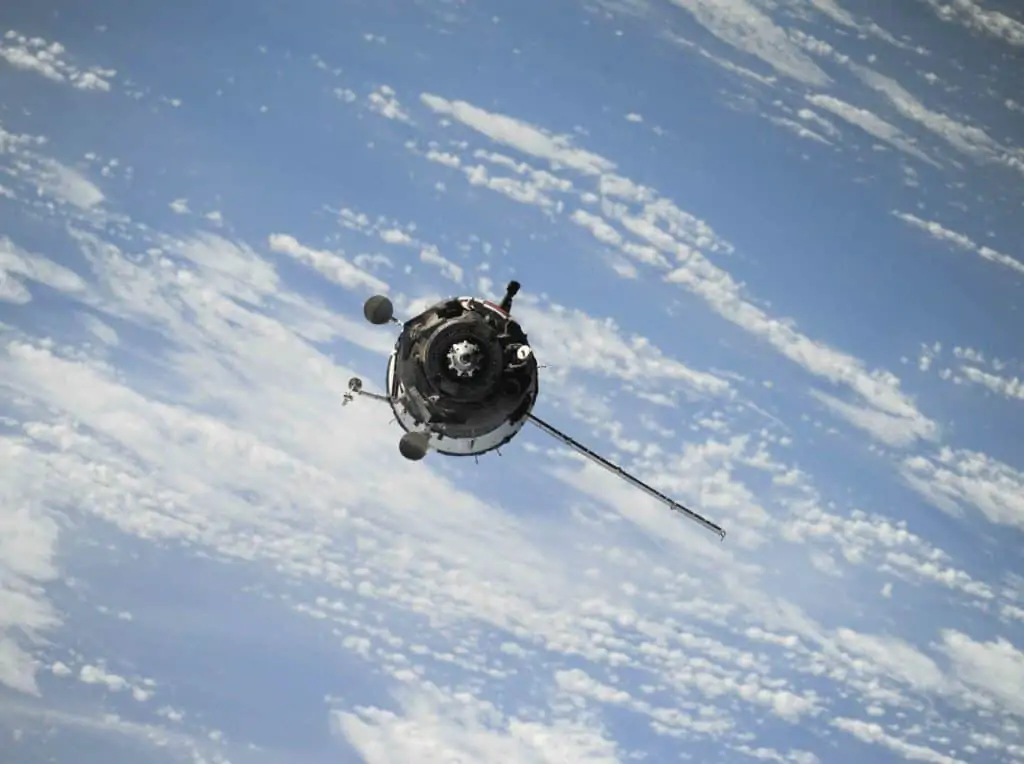Imagine this: a $400 million satellite is obliterated by a hypersonic missile in low Earth orbit. The resulting debris cloud threatens $1 trillion in global space infrastructure, disrupts GPS navigation for millions, and sends stock markets into a tailspin.
This isn’t science fiction—it’s a plausible scenario in 2025. As countries like the U.S., China, and Russia flex their cosmic capabilities, the economic stakes of extraterrestrial conflict are soaring. From disrupted supply chains to stalled scientific innovation, a single spark in orbit could ignite a financial firestorm on Earth.
It might sound far-fetched, with many variables needing to align—but the implications are too significant to ignore. Here’s a closer look at how space warfare could reshape the global economy—and why it’s a business story that demands your attention.
The Fragile Space Economy
The space economy is thriving. Valued at $447 billion in 2023, it’s projected to reach $1.8 trillion by 2035 (McKinsey & Company, 2023). Satellites underpin everything from ride-sharing apps to global banking systems. However, this interconnected infrastructure is increasingly vulnerable.
A 2022 RAND Corporation study revealed that a single anti-satellite (ASAT) strike could increase orbital collision risks by 50% for decades—jeopardizing mega-constellations like SpaceX’s Starlink, which operates more than 6,000 satellites.
Where does the economic damage come in? A single collision could cost satellite operators billions in replacement and mitigation efforts. The ripple effects would hit industries reliant on satellite data—agriculture, logistics, telecom, and more. For example, a 2022 geomagnetic storm cost SpaceX $50 million after it lost 40 Starlink satellites. Now, imagine the scale of a deliberate attack.
Space: The New Strategic Frontier
Space is no longer a peaceful frontier. China’s 2021 hypersonic missile test and Russia’s 2021 ASAT demonstration—which created over 1,500 pieces of trackable debris—highlight a growing arms race in orbit (Council on Geostrategy, 2024). Investor confidence took a hit: SpaceX’s valuation dropped 5% after the Russian test due to concerns over orbital congestion (Bloomberg, 2021).
A full-scale conflict could freeze investor appetite for space ventures, threatening the $350 billion in private capital projected to flow into the sector by 2030 (Morgan Stanley, 2022). Developing nations—already struggling to access space—could be further excluded from essential satellite services, deepening global inequality.
Meanwhile, defense contractors like Lockheed Martin and Raytheon are capitalizing on the trend, with space-related defense contracts expected to reach $60 billion by 2030 (Statista, 2024). War in space might enrich a few—while impoverishing many.
Innovation Under Fire
Space conflict doesn’t just threaten physical assets; it also has the potential to both spur and stall innovation. A 2023 study published in PNAS estimated that a resurgence in public-sector space investment could boost U.S. economic output by $1.5 to $3 trillion over two decades—fostering breakthroughs in AI, materials science, and clean energy.
However, conflict often shifts funding priorities. The U.S. Department of Defense has allocated $24.4 billion to its space budget for 2025, with nearly 30% dedicated to counterspace capabilities (Defence.gov, 2025). Warfare-generated debris could delay or cancel critical missions. NASA’s Artemis program—budgeted at $93 billion through 2025—depends on navigable orbits. A cluttered space environment could also derail future lunar mining initiatives, which are projected to generate $100 billion annually by 2040 (New Space Economy, 2023).
The result? A slowdown in a sector that has driven economic and technological growth since the launch of Sputnik.
Is There a Path Forward?
Preventing economic catastrophe requires swift and coordinated action. A 2024 Yale Insights report advocated for global space traffic management systems to reduce collision risks—but enforcement mechanisms remain weak. Companies like SpaceX are developing automated collision-avoidance systems, yet geopolitical friction limits cooperation.
Treaties restricting space weaponization—like an updated version of the 1967 Outer Space Treaty—are urgently needed. In the meantime, businesses should hedge their bets by diversifying space investments and advocating for stronger public-private partnerships to protect orbital assets.
The alternative? A cosmic conflict that could cost trillions and set back global progress by decades.
The stars are calling—but war could silence them.

